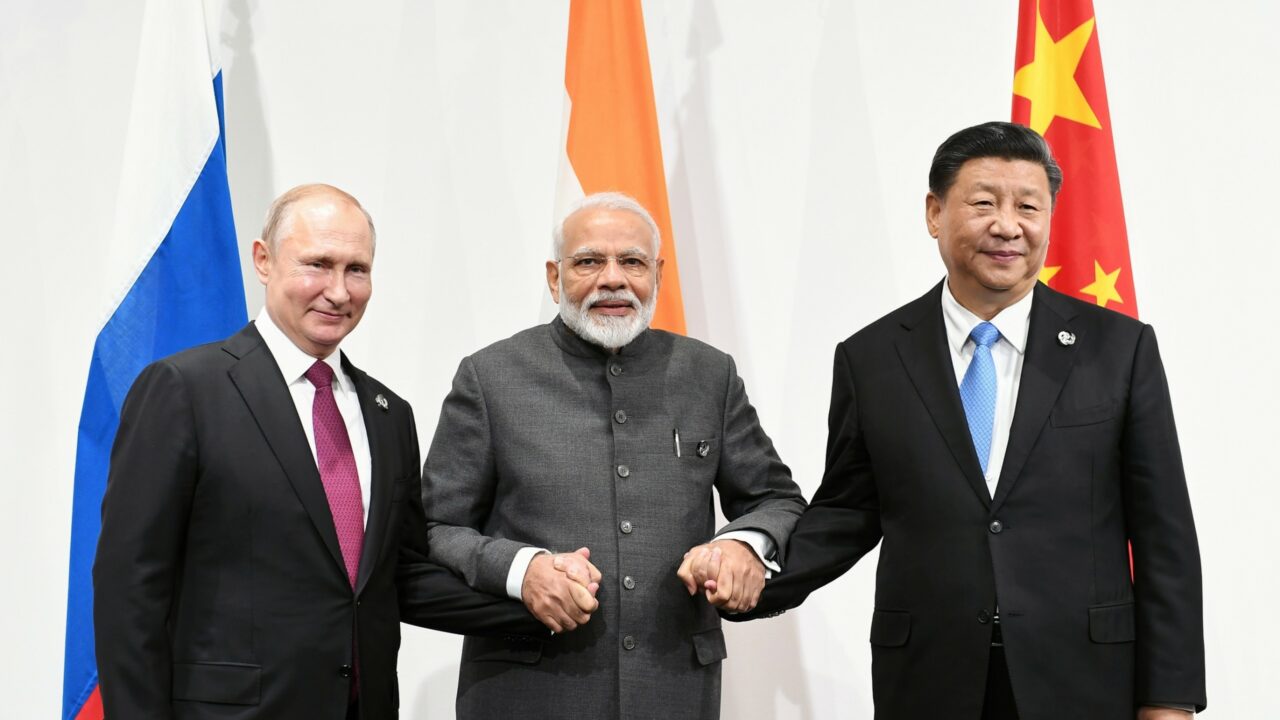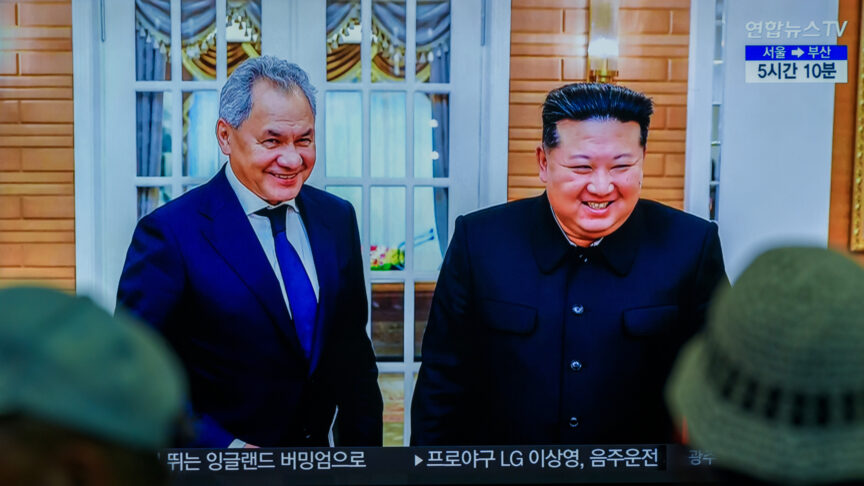Russia’s escalation in Ukraine: Views from Asia
Asia’s three largest powers all have a stake in the Russia-Ukraine crisis. China hopes to change the global order, Japan aims to resist this effort, and India is eager not to alienate Russia or the West
At first glance, the escalating crisis that has followed Russia’s recognition of separatist-controlled regions in eastern Ukraine may seem to be a fundamentally European and transatlantic problem. But, as demonstrated by the emergency meeting the UN Security Council held immediately after the event, the resulting threat to peace and stability – as well as to the international order and the global economy, particularly supply chains – has already led to policy shifts far beyond the transatlantic community. China, India, and Japan all have special historical relationships with Russia that constrain their reactions to the conflict in Ukraine. So, how are they positioning themselves?
A tougher tone from Tokyo
The current Japanese government has taken a tougher tone on Russia than many of its recent predecessors. Under its previous prime minister, Shinzo Abe, Japan was relatively ambivalent about how to respond to Russian expansionism. Japan has always shown great support for international efforts to respond to crises. But the country’s dependence on imports of Russian oil and natural gas, and its desire to continue the bilateral dialogue over the Northern Territories (which the Soviet Union seized in 1945), have traditionally made it reluctant to impose hard sanctions on, and limit diplomatic exchanges with, Russia.
Tokyo is concerned that, if democratic countries fail to take a tough line on Russia, this will encourage China to exert more control over its neighbours as well
The new Kishida administration seems to have abandoned this conciliatory approach. It appears ready to join the US-led restrictions on exports of high-tech products that use advanced technologies such as semiconductors, artificial intelligence, and robotics. And it will implement several sets of economic sanctions on Russia and the two pro-Russian separatist regions in eastern Ukraine.
Tokyo is concerned that, if democratic countries fail to take a tough line on Russia, this will encourage China to exert more control over its neighbours as well. Accordingly, Japan now appears more willing to align with the US and G7 approach than it was after Russia’s 2014 annexation of Crimea. Tokyo worries that Beijing will use military force to change the status quo in the Indo-Pacific – particularly given that China has greatly enhanced its military presence in the Taiwan Strait and the East China Sea, and is engaging in joint naval exercises with Russia in the Tsugaru Strait.
Cautious silence from India
As Russia-Ukraine tensions continue to rise, India has entered an era of turbulence. Since the end of cold war, New Delhi’s proximity to Moscow has been determined by India’s high dependence on the Russian defence industry (according to the Stockholm International Peace Research Institute, India absorbed 23 per cent of Russia’s arms exports during 2016-2020), by its energy needs, and even more so by a fear that Russia, driven by its antagonism with the United States, will fall within the Chinese sphere of influence.
New Delhi has been unable to prevent a rapprochement between Moscow and Beijing. But, so far, it has skilfully managed the differences between the interests of the two authoritarian regimes.
The Russia-Ukraine crisis could disrupt the fragile equilibrium that India has preserved in its relations with Russia on one side and Western powers on the other. India’s representative on the UN Security Council has cautiously emphasised the need to focus on diplomacy. However, India’s position does not reflect sympathy with Russia’s behaviour but a lack of better options.
The meeting in Beijing between the Chinese and Russian presidents on the first day of the 2022 Olympics, and the Pakistani prime minister’s planned visit to Russia this week, are clear indicators of the risks for India of moving too close to the West on this occasion. Indeed, New Delhi would have a great deal to lose by alienating Moscow. There is also a real risk that India may lose some of the Western political capital it has accumulated since the 1990s. But, for India, the choice is only between the bad and the ugly. The good is a luxury it cannot afford at present.
Tacit support from China
Beijing is tacitly supporting Russian actions in Ukraine. China’s diplomatic response to the latest Russian escalation was to carefully call for the peaceful resolution of conflicts and to urge all parties to show restraint. Beijing has already spoken out publicly against Western-led sanctions on Russia and, so far, has failed to even implicitly condemn Russian aggression. This comes as no surprise: only two weeks ago, President Vladimir Putin and President Xi Jinping met on the sidelines of the 2022 Beijing Olympics. The ink is barely dry on their joint statement supporting each other’s ambitions and celebrating their bilateral relationship as the embodiment of “a comprehensive strategic partnership for a new era”.
Xi did not need to openly support Putin’s position on so-called “NATO expansionism” at that juncture, but their joint statement did just that. This suggests that China’s overriding political preference is for changes in the global order that accommodate the interests of the Chinese Communist Party – and that this aim is currently best served by a closer alignment between Moscow and Beijing, which is more important than short-term economic considerations. If the pandemic era has demonstrated one thing, it is that China’s leadership appears willing to accept economic costs to achieve grander political goals – domestically and internationally.
China’s support for Russia comes at a time of growing antagonism between Beijing and the West. The relationship between China and Russia has evolved markedly in the past few years. There is nothing to suggest that this trend will be derailed by Russian military aggression in Europe.
Chinese leaders seem to be carefully weighing how closely and openly they should support Putin, in the hope of minimising the negative impact on China’s economic and political interests. But it is unlikely that the current escalation in Ukraine will create a massive rift in Russia-China relations. On the contrary, depending on how the crisis develops and the rest of the world responds, it may forge an even closer partnership between Beijing and Moscow in the short term, as the West’s focus on the European theatre creates space for China to expand its sphere of influence in Asia.
The European Council on Foreign Relations does not take collective positions. ECFR publications only represent the views of their individual authors.



